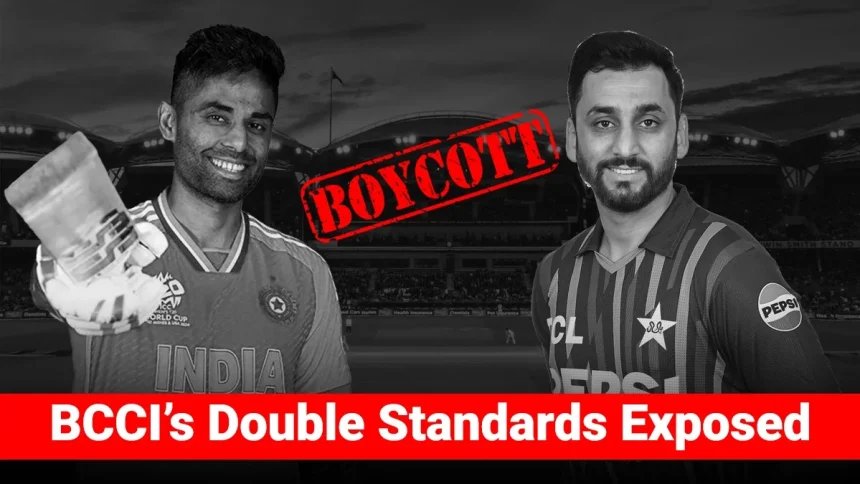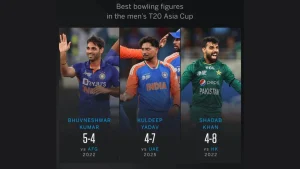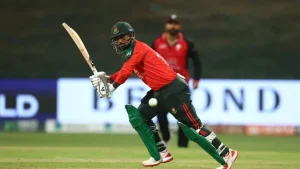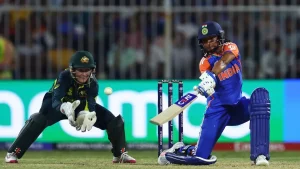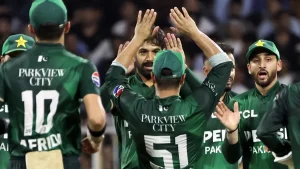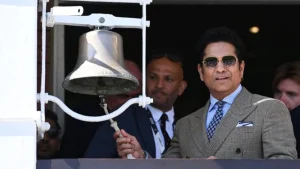The ongoing Asia Cup 2025 has turned into one of the most politically charged cricket tournaments in recent history. The much-awaited India vs Pakistan match, usually celebrated as the highlight of Asian cricket, has been overshadowed by the emotional sentiments of the people, following the “Operation Sindoor” and the heightened border tensions between the two countries.
This time, however, the debate is not about cricketing strategies but about whether the match should even be played. Social media has erupted with angry posts, accusing the BCCI and Indian players of ignoring national sentiment and disrespecting the Indian Army by going ahead with the fixture.
The empty seats at what is usually a sold-out stadium reflect the public mood. Cricket may still be an emotion in India, but millions believe this emotion should not outweigh patriotism.
The lives lost and Operation Sindoor
On May 6, 2025, India launched Operation Sindoor, striking nine militant targets across Pakistan and Pakistan-controlled Kashmir in retaliation for the April 22 terrorist attack that killed 26 Hindu tourists in Indian-administered Kashmir. The strikes targeted Jaish-e-Mohammed and Lashkar-e-Taiba infrastructure.
The military action has since triggered economic disruptions and diplomatic breakdowns. Air and surface connectivity between the two countries remains sealed. Diplomatic delegations have been expelled, the Indus Waters Treaty suspended, and aviation costs have risen sharply due to rerouted flights.
“The economic fallout from Operation Sindoor is multifaceted, impacting trade routes, aviation, and diplomatic relations, thereby exacerbating the already fragile economic conditions in the region,” stated Dr. Meera Patel, Senior Analyst, South Asian Economic Forum.
The Economic Impact of the Terror Attacks
The border closures and trade bans have deeply impacted industries in both nations:
Dry fruits: Indian traders now reroute imports of Pakistani almonds, walnuts, and dates through third countries like Dubai, raising costs by over 20%.
Textiles: Pakistan’s once lucrative textile exports to India have completely collapsed.
Aviation: Airlines like Air India and IndiGo, along with global carriers such as Lufthansa and Air France, face longer flight routes and higher operating costs as the airspace connection between the two countries has been blocked.
The Federation of Indian Export Organizations (FIEO) estimates combined trade losses at nearly $500 million annually due to the ban.
Pakistani Cricketers Add Fuel to the Fire
The political temperature around the Asia Cup 2025 clash has only intensified because of several Pakistani cricketers’ social media activity in the wake of recent attacks. After the Pahalgam massacre and during Operation Sindoor, many players publicly sided with Pakistan’s military narrative, posting anti-India content that has angered Indian fans.
What has further inflamed public sentiment is the fact that two of these cricketers have now been included in Pakistan’s Asia Cup squad against India. Critics argue this makes the fixture not just a sporting contest, but a confrontation loaded with provocation.
Among those who targeted India online were:
- Shahid Afridi – issued a strongly worded anti-India statement during Operation Sindoor, accusing New Delhi of “unprovoked aggression” and echoing Pakistan Army talking points.
- Mohammad Rizwan – shared a politically charged post backing Pakistan’s stance and taking a sharp dig at India amidst escalating tensions.
- Iftikhar Ahmed – amplified anti-India hashtags that trended in Pakistan during the strikes.
- Shoaib Malik – reposted military-aligned content in solidarity with Pakistan’s official position.
- Rumman Raees – joined in with inflammatory commentary critical of India’s actions.
- Faheem Ashraf: Faheem Ashraf sparked outrage with his Instagram post, where he shared a Ghibli-style art showing a Pakistani soldier putting sindoor on an Indian woman in a tricolour sari. Sharing the post, he wrote: “New Chapter Begins.”
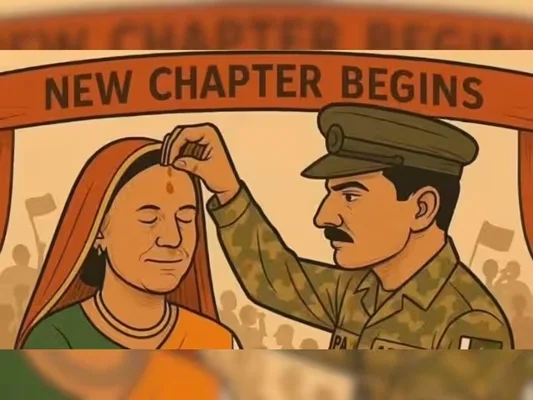
- Abrar Ahmed: In March 2025, Abrar Ahmed mocked the Indian Air Force by sharing a picture of himself, accompanied by a cup of tea. Sharing the image, he captioned the image “Fantastic Tea”, referencing the 2019 Abhinandan incident revived during Operation Sindoor.

In total, seven Pakistani cricketers were called out by Indian media and fans for their partisan posts, raising the question of whether sport can truly be separated from politics when the players themselves blur the lines.
Legends League Precedent vs Asia Cup 2025 Reality
Just a few months ago, the Indian team in the Legends League Cricket had refused to play Pakistan, an act celebrated as bold and inspiring. Many saw it as a proud moment of standing firm with the Indian Army.
Yet, the disappointment is palpable now as the senior Indian cricket team has chosen to play Pakistan in the Asia Cup. Fans feel betrayed, questioning why what was possible in a smaller tournament is being ignored in one of cricket’s biggest stages.
BCCI’s Official Stand on India vs Pakistan, Asia Cup 2025 match:
BCCI Secretary Devajit Saikia recently addressed the criticism. Speaking to NDTV, he explained that the board is bound by central government guidelines:
“The technicality regarding participation of the Indian team, for cricket or any other sport, the central government’s sports department has laid down the guidelines as well as the policies. While framing the policy, I am sure that the central government has taken a very cautious decision to lay out the guidelines that will help the sports federations at the national level. Accordingly, we can take a call regarding participation in any multi-national tournament.”
He also warned of possible sanctions from the ACC and ICC if India were to boycott Pakistan in multilateral tournaments, which could harm not only the board but also the careers of young players.
Gautam Gambhir – From Fiery Words to a Softer Stand
Adding to the controversy is Gautam Gambhir, India’s head coach. As a commentator and politician, Gambhir was among the strongest voices insisting that India should never play Pakistan. But now, in his new role, he is supporting the team’s participation.
Back in 2019, after the terrifying Pulwama attack where 40 CRPF personnel lost their lives in a deadly strike claimed by Pakistan-based terror outfit Jaish-e-Mohammed, Gambhir had made one of his boldest statements:
“There can’t be conditional bans. Either you ban everything with Pakistan or open everything with Pakistan. What has happened in Pulwama is absolutely not acceptable.”
Not just this, Gambhir had cited *England’s forfeiture of their 2003 World Cup match against Zimbabwe* in protest of Robert Mugabe’s regime.
“England decided in 2003 they wouldn’t go to Zimbabwe, they forfeited. If BCCI decides not to play against Pakistan, everyone should be mentally ready to give those two points,” Gambhir said.
“There could be repercussions and we may not qualify for the semi-finals. No media should blame the Indian team if they plan to boycott playing Pakistan.”
When asked what should happen if the two teams met in the final, Gambhir was clear:
“In that case, India should forfeit the final.”
The contrast between his earlier hardline stance and his current acceptance of the Asia Cup fixture has led many to accuse him of hypocrisy.
Harbhajan Singh – Torn Between Patriotism and Protocol
Even Harbhajan Singh, who avoided facing Pakistan in the Legends League, is now speaking in favor of the Asia Cup clash.
“India-Pakistan match always comes in the limelight,” Harbhajan Singh said. “But after Operation Sindoor, everyone said there should be no cricket and no business.”
While Harbhajan Singh expressed his thoughts that he is not in favor of the India vs Pakistan match, he also mentioned that he would follow the decision taken by the government. He said:
“Everyone has their own way of thinking and understanding, but I feel till the time relations between the two countries do not improve, cricket and business should not be there as well,” Harbhajan added. “But then, that is my thought. If the government says the match can happen, it should happen.”
Kapil Dev and the “Do Your Job” Approach
While fans rage, legendary captain Kapil Dev has advised calm. He urged players to focus solely on the game, leaving political decisions to the government:
“Players should concentrate only on their performance and not get distracted by anything else. Just go and win. The government will do its job, and the players should do theirs,” Kapil Dev said, according to PTI.
This statement has sparked further debate, as many argue that ignoring the bigger picture amounts to reducing cricket to mere entertainment when national pride is at stake.
Supreme Court Refuses to Intervene in India vs Pakistan Clash
On Thursday, the Supreme Court refused to urgently list a Public Interest Litigation (PIL) seeking the cancellation of the Asia Cup 2025 clash. The petition argued that cricket should not take precedence over national interest and even demanded bringing the BCCI under the Ministry of Sports through the National Sports Governance Act, 2025.
However, Justices JK Maheshwari and Vijay Bishnoi declined the plea, remarking: “The match must go on.”
The Larger Context: A History of No Bilateral Ties
India and Pakistan have not played a bilateral cricket series since the 2012-13 Pakistan tour of India. Since then, political and security tensions have ensured that the two sides only meet in neutral-venue tournaments such as the Asia Cup and World Cup.
Despite repeated pleas, protests, and even legal complaints, the Asia Cup fixture is going ahead. For many, this proves the uncomfortable truth: TRP and revenue take precedence over soldiers’ sacrifices.
Are entertainment and money more important than the country?
The India vs Pakistan Asia Cup 2025 clash is more than just a game; it is a test of national sentiment, economic resilience, and cricketing politics. From Operation Sindoor’s trade disruptions to the BCCI’s defense of its position, the debate highlights the delicate intersection of sport and geopolitics.
While Kapil Dev and others call for focus on the game, the public anger, manifesting in empty seats and social media uproar, suggests otherwise. For once, cricket’s biggest rivalry is not just about bat and ball, but about whether money and entertainment are being placed above the nation and its soldiers.
ALSO READ: Top 7 Best FIFA Of All Time Ranked

